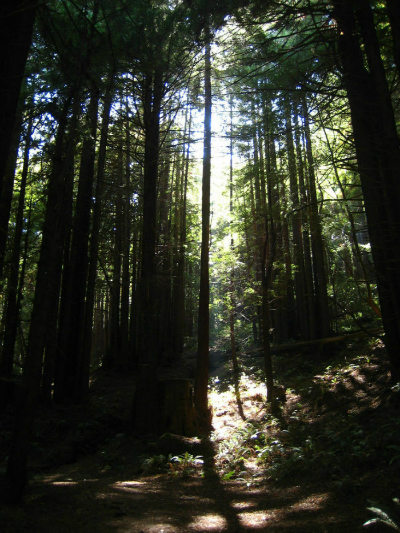
Three environmental groups filed a lawsuit this week to stop a controversial forest-to-vineyard conversion project in northwest Sonoma County, California.
The lawsuit arrives about four weeks after the California Department of Forestry and Fire Protection (Cal Fire) decided to approve the infamous Artesa Napa – Fairfax vineyard project that would replace more than 140 acres of coastal redwood forest with new vineyards for the production of wine. The project is funded by one of the world’s largest corporate wineries, Codorníu S.A.
As stated in a joint press release by the Sierra Club’s Redwood Chapter, the Center for Biological Diversity and Friends of the Gualala River, Cal Fire blatantly violated state law when approving the project because the agency “Failed to adequately consider the project’s environmental impacts and did not properly analyze alternatives less damaging to the environment, in violation of the California Environmental Quality Act. Cal Fire only considered alternative vineyard sites that are also forested, to reach the flawed conclusion that the project would be equally damaging to the environment at other sites.”
The proposed land conversion would devastate the complex forest ecosystem; reduce local water quality and threaten the continued survival of the endangered coho salmon.
Cal Fire also did its best to ignore any impacts the project would have on the history, identity and cultural practices of the Kashia Pomo.
For starters, the land earmarked for destruction contains numerous archeological sites that have never been adequately documented or protected. Sites that have been documented proved to be at least 5,000 years old.
The Kashia Pomo also consider the area to be a sacred place that must be protected for future generations. Two Kashia Pomo Elders spoke to the matter last year, stating,
Where we used to live, no one can see anything now. It is time we open our mouths. Those vineyard people are interfering with our ancestors’ area.
[…] We went there as kids. We picked berries there with our mother. We picked berries for necklaces. There is another place over there where there is a lot of Manzanita, and that was really important to us. We made spoons from that and also awls to make baskets. These are the things we grew up with. We dedicated our trees not to be cut. The trees in the forest are blessed. The Redwoods give us good medicine from the sap that hardens. It was used for anemia. The young shoots are used for colds. Bark dolls are made from Redwood.
Everything out there is used for something.
[…] The reason we are against the disturbance in Annapolis is that place is alive. It is a dedicated area. It is a special area. If they do something wrong there, things are not going to go right. Who will believe us? We are speaking from the viewpoint of Kashia…
[…] We know that whole area is a village site. All these places were occupied and used by our people. The whole place is one.
It was not so bad when the land was used for sheep grazing, but here they are going to flatten the land — land which would be better used for education, where our children and neighbors can learn about our ancestors and their way of life.
It is a blessing to pick food. It is a blessing to roam around. The creator wants us to take care of this place.
“The idea that Artesa could permanently clearcut and destroy 154 acres of redwood forest, rip out the stumps, remove all vegetation, bulldoze the soil, apply tons of chemicals and install miles of wildlife-exclusion fencing with no significant environmental impacts, as claimed in the environmental review by Cal Fire, is just not credible,” said Dave Jordan of the Sierra Club. “We’re not against wine or grape-growing, but we object to the destruction of forests and Native American heritage.”
“Clearcutting forests to plant vineyards is foolish and short-sighted,” added Justin Augustine, staff attorney at the Center for Biological Diversity. “Turning redwood stands into vineyards will increase greenhouse gas emissions and harm stream flows, water quality and habitat for wildlife, including endangered salmon and steelhead trout.”
“Sonoma County needs to conserve its remaining forestland for the benefit of future generations, not sacrifice redwood trees for the sake of pinot noir,” added Jay Halcomb of the Sierra Club.

Indigenous Peoples are putting their bodies on the line and it's our responsibility to make sure you know why. That takes time, expertise and resources - and we're up against a constant tide of misinformation and distorted coverage. By supporting IC you're empowering the kind of journalism we need, at the moment we need it most.